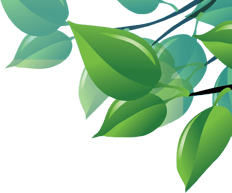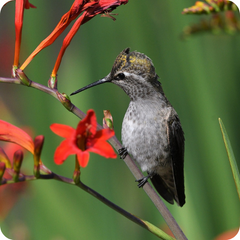

Hummingbirds are small birds with almost 360 species and are found majorly in the tropics. They were given the name "hummingbird" because of the sound of humming that's created when their wings flap. Because of the magnificent color combination they possess, they're also known as flying jewels.

These birds are one of the few that are able to go into torpor- a state of hibernation to survive in undesirable temperate. Even though hummingbirds look so small, their appetite is enormous! They tend to consume food of almost half of their body weight. So, if you're wondering the details about what hummingbirds eat, go ahead and read this article to find out!

A hummingbird approximately weighs only about 0.1-0.3 ounces, but they need a lot of food throughout the day to survive. They can ingest almost 46 oz of nectar along with dozens of insects every day!
Hummingbirds consume sugar water, as all backyard birders are aware of, but that's not all these tiny birds consume. Hummingbird meal requires a range of nutrients in order for them to be healthy, including protein, amino acids, vitamins, and minerals. Hummingbirds must continuously search and discover stable food supplies to survive due to their energetic lifestyle.
They feed on flower nectar because they have acquired the intuition to follow plant cycles as they blossom at various times during the summertime. However, flower nectar does not provide a complete diet for hummingbirds, so they obtain their other nutrients by the consumption of insects, tree sap, and much more.
Discovering what food choices hummingbirds prefer will assist you in planning an appealing buffet in your yard that will both; attract these little birds and satisfy all of their nutritional demands. Listed down below are the food that is known to be preferred by these little creatures:

The most common and abound source of hummingbird meal is nectar, which can be obtained from appropriate flowers or water and sugar solutions. The high concentration of sugar in nectar provides hummingbirds with the fuel they require for their fast metabolism, quick speed, and active lifestyle.
Recipe for making hummingbird nectar: Take one cup of refined white sugar and add it to 4 cups of water, then mix it till all the sugar dissolves. Make sure that you do not add any extra flavoring to the solution. Instead of making it every day, you can make this sugar-waters solution in a considerable amount and use it to feed the birds for a few days.
There are instant nectars available which you can buy on days you don't have the time to make it yourself. These premade nectars come with no extra added additives, you just have to add the powder to water, and the nectar will be ready.

Even though nectar is what hummingbirds primarily consume, they still need their proteins and other nutrients to survive, which the nectar does not contain. These birds ingest different kinds of Insects, spiders, larvae, etc., that give them the much-needed nutritional components such as fat, salt, and protein. A typical adult hummingbird eats about several dozens of insects per day and even more if they're migrating. The way a hummingbird hunts an insect depends on the type of bird it is; a few examples are given below:

These hummers have the ability to catch insects like flies, bees, mosquitoes, and much more in mid-air. They also pluck out caterpillars straight off the plant leaves plus spiders are a big part of their diet.

This type of hummingbird hunts insects by the method of "hawking"- in which they wait till the prey to fly past them then reach out to grab and eat them.

Broad-tailed hummers hunt insects in all types of ways, whether it's catching them mid-air, plucking off leaves, or stealing the insects from the spider web.

Hummingbirds sometimes drink tree sap from holes excavated by woodpeckers whenever nectar is limited. While tree sap isn't quite as sweet as nectar from flowers, it nevertheless supplies a sufficient quantity of sugar for a hummingbird's calorie requirements. The juice of the sugar maple tree, out of which maple syrup is created, is a favorite among hummingbirds.

Even though hummingbirds don't intend to eat pollen, it automatically gets stuck on their tongues when getting nectar from flowers. So, although pollen is not a part of their diet, it can act as a way to get protein.

Hummingbirds may be drawn to certain ripe or juicy fruits. They have been observed sipping the juices of apples, pears, berries, and oranges that have been peeled open or exposed.

The answer to that question is yes; hummingbirds do indeed drink water to stay hydrated. That being said, they get their main water content by drinking nectar, but sometimes they can have plain freshwater as well, especially when they are migrating.

If you want these beautiful birds coming to your backyard, then there are certain things you need to do, such as:
Planting the correct plants, flowers, shrubs, and trees that are nectar-rich, these include; coral bells, red buckeye, purple coneflowers, etc. One helpful fact to remember about hummingbirds is that they get attracted to red, tubular flowers!
Hummingbirds are not only attractive to see because of their vivid colors and small size, but many species of plants rely on them for pollination as well. These birds are regular summer guests to nectar feeders; however, they also eat a wide variety of other foods.